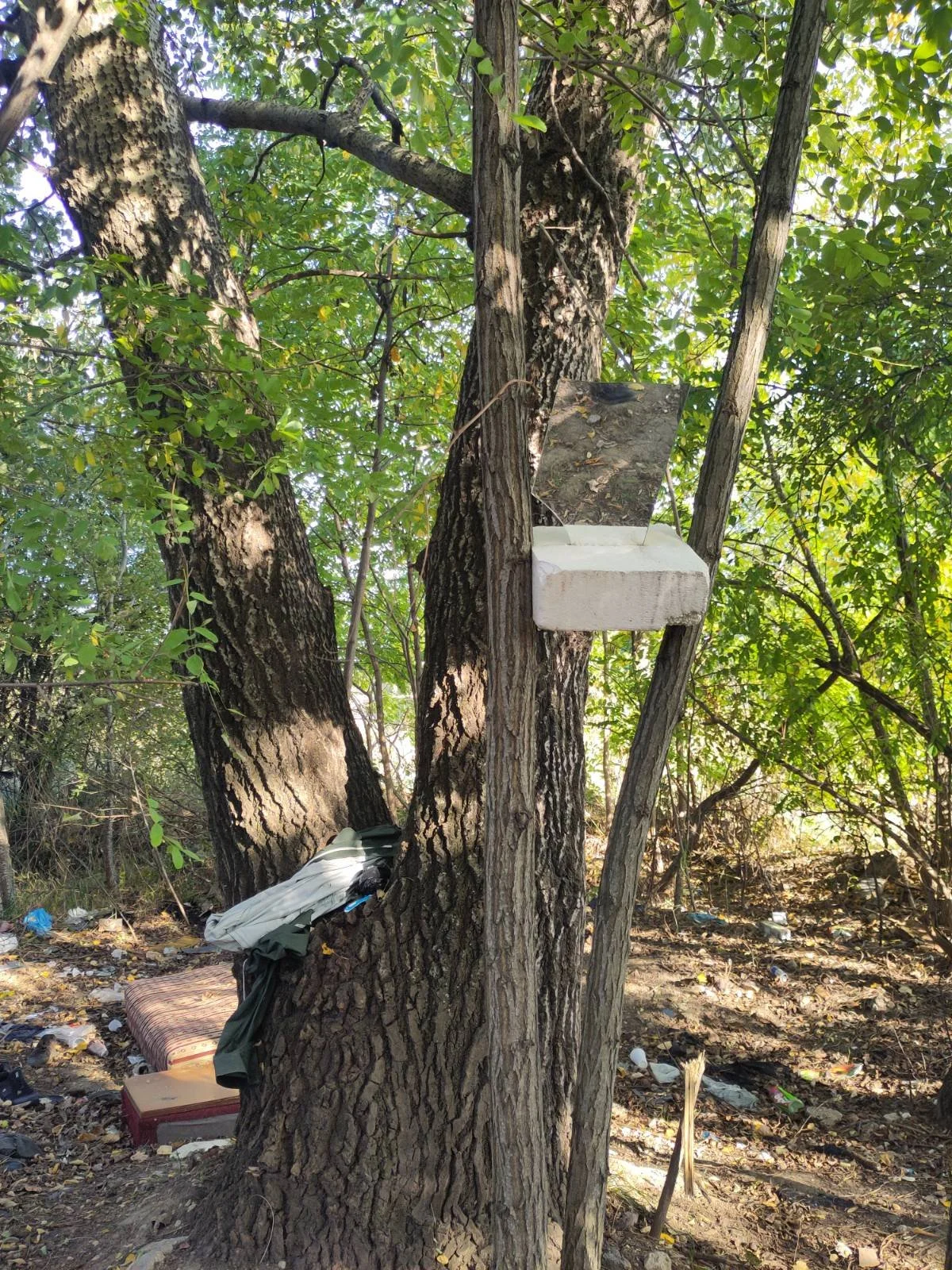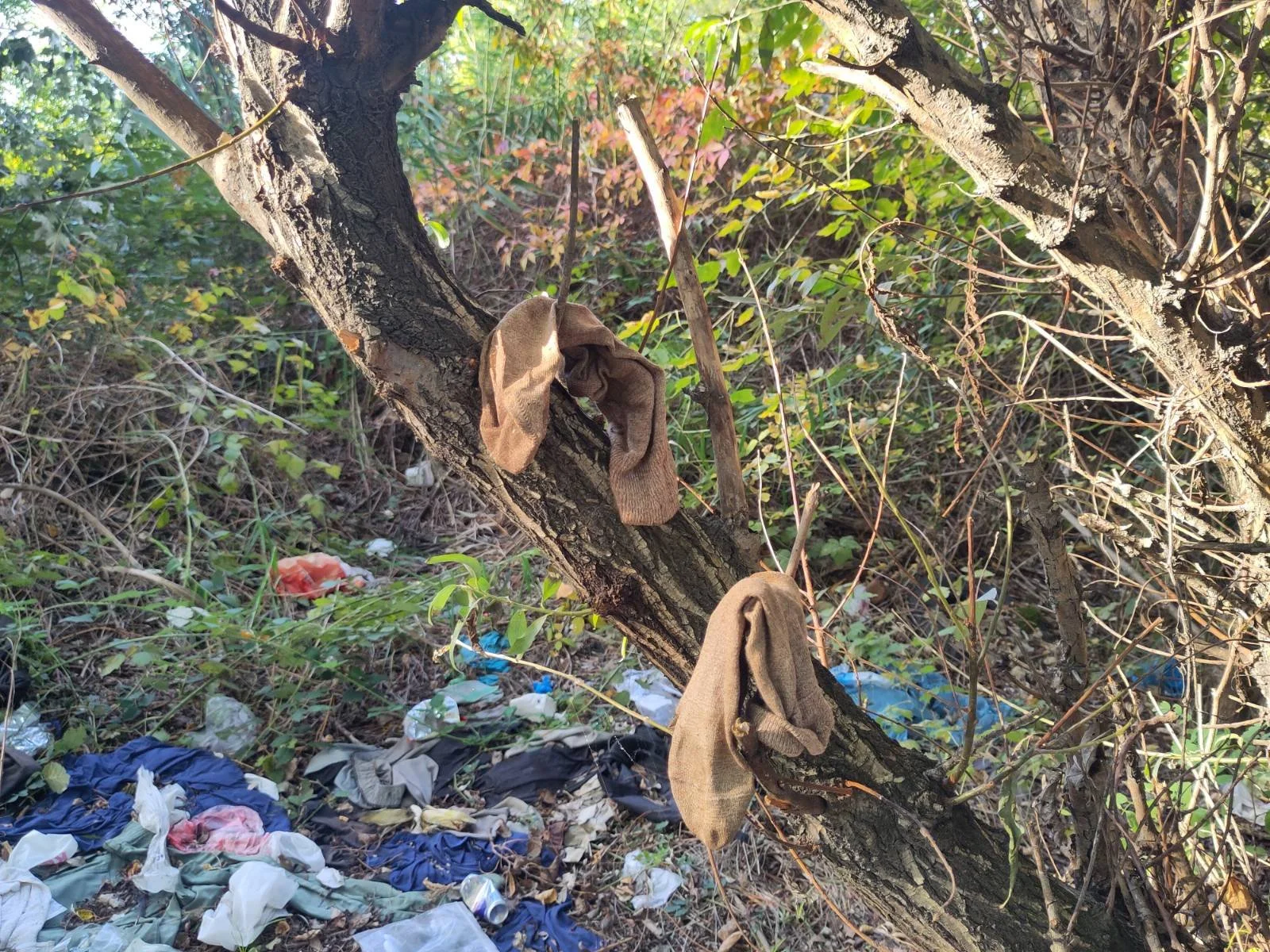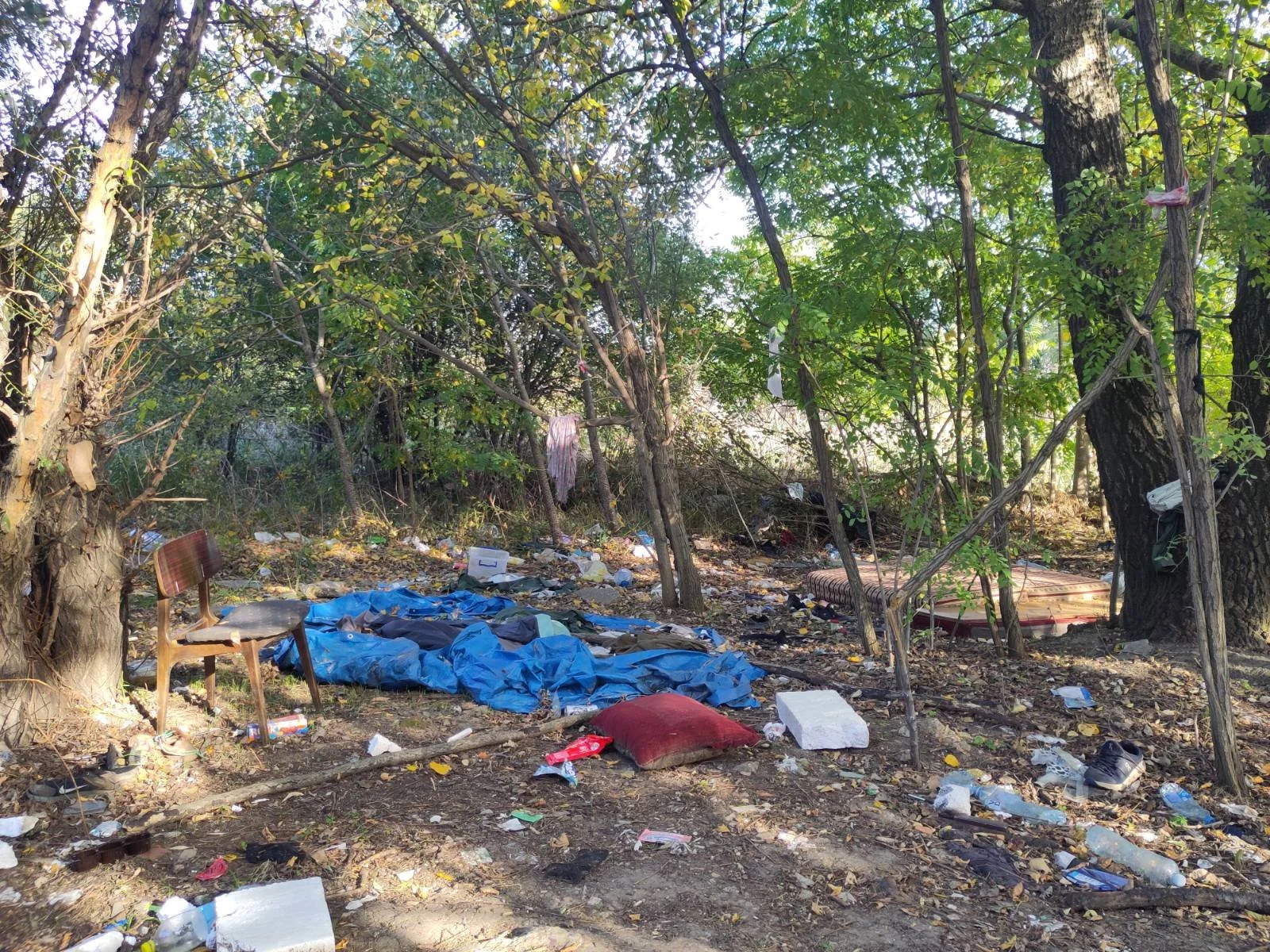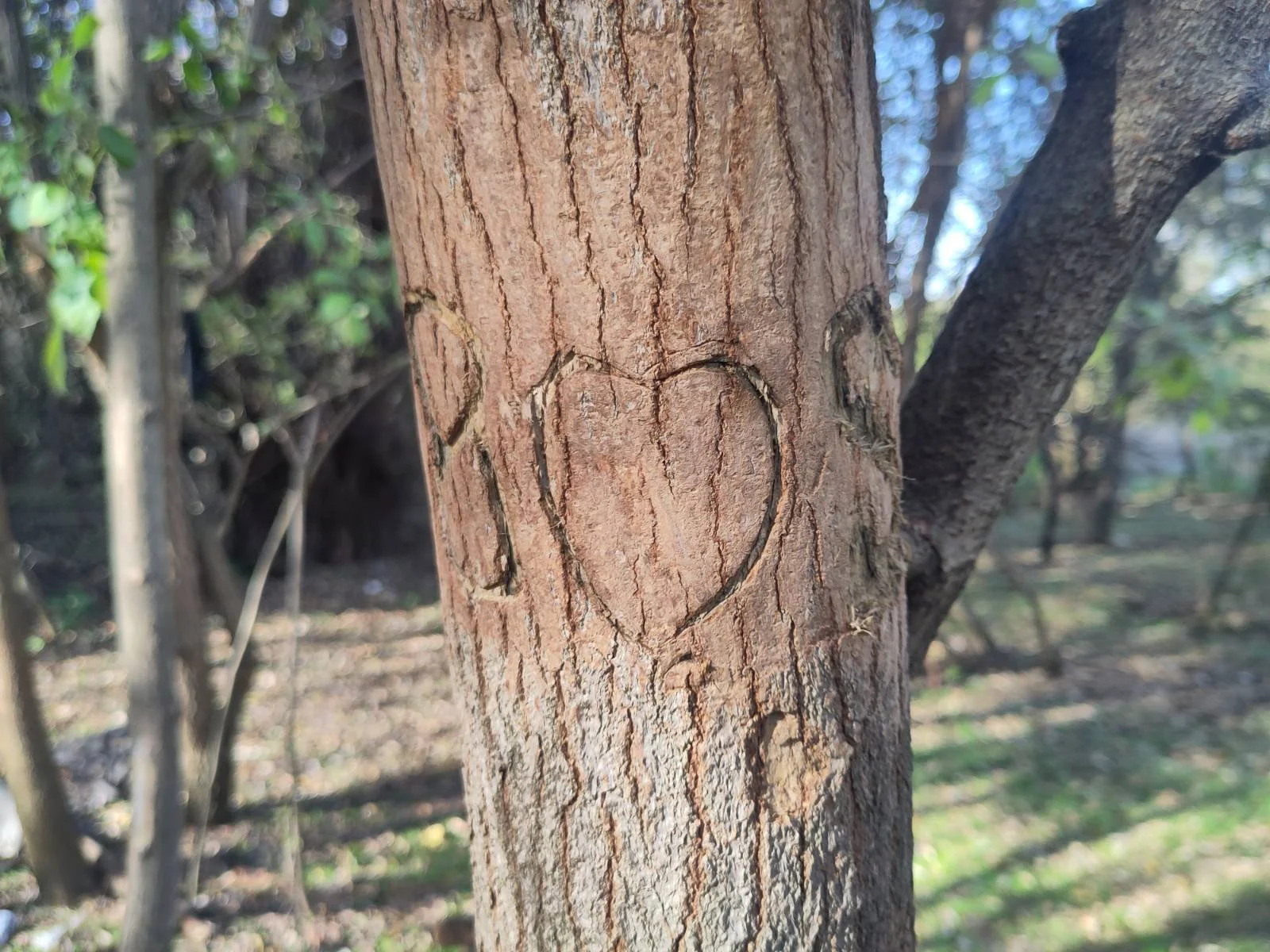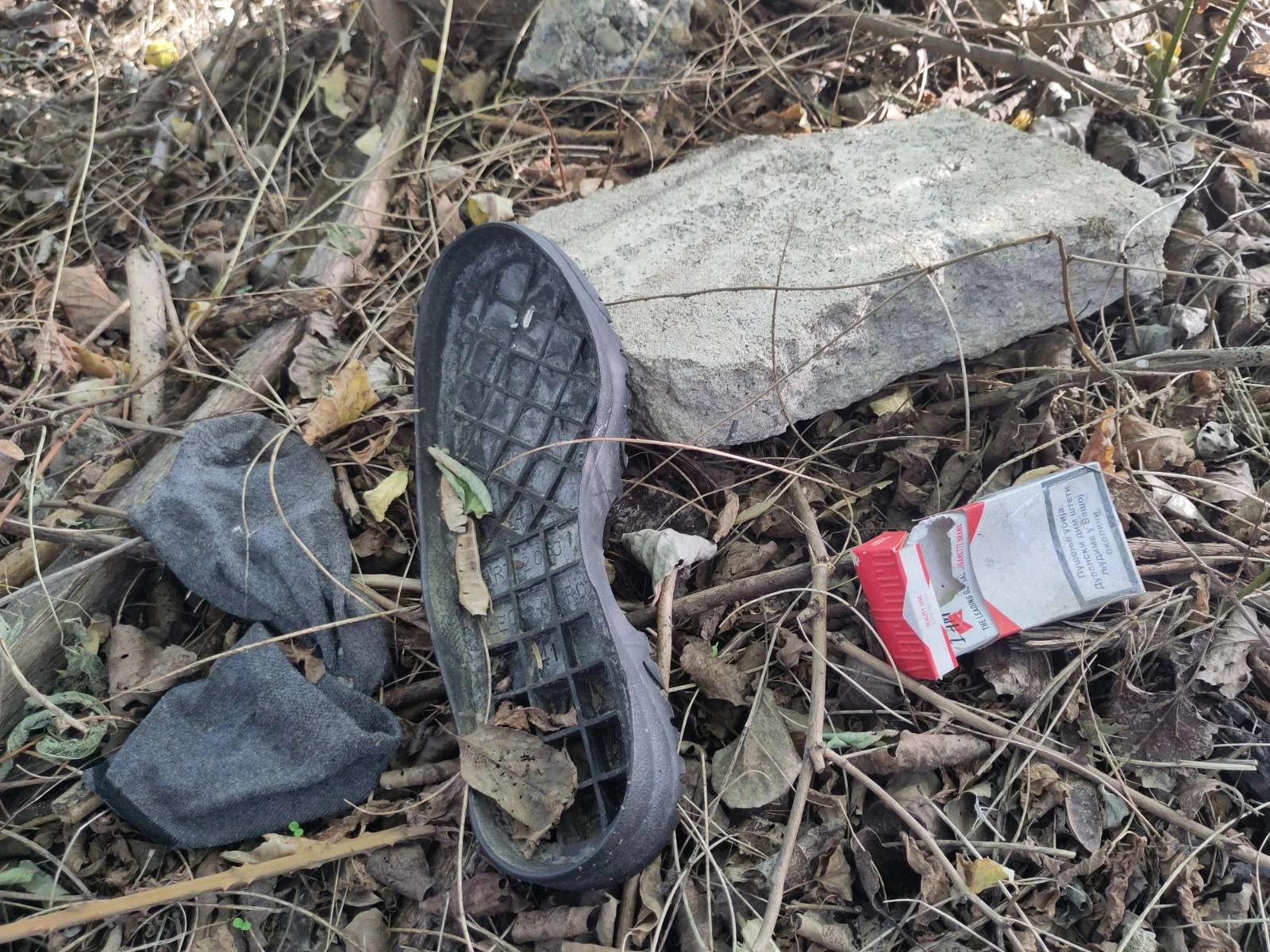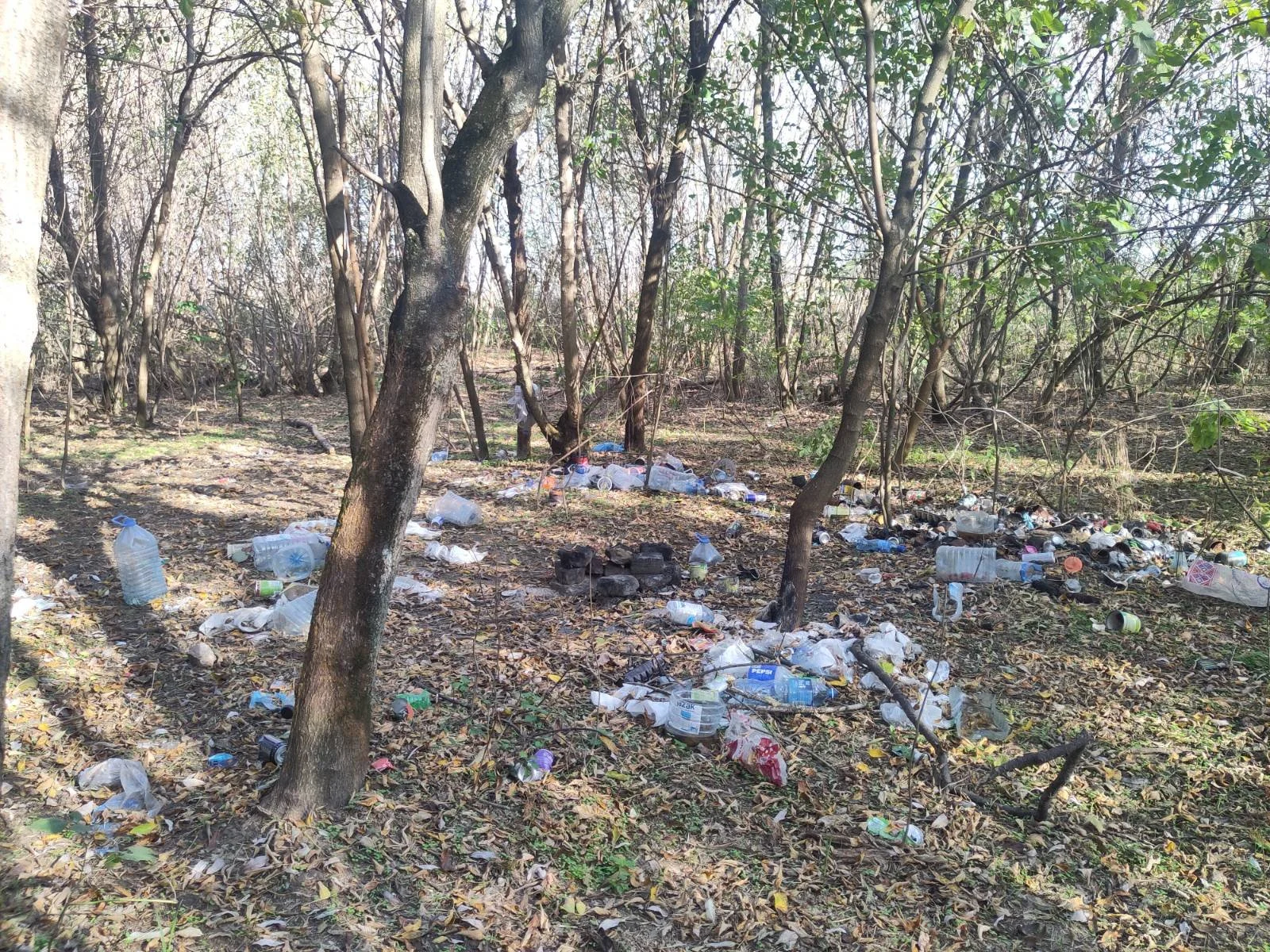I don’t know if I will have a happy ending, but it is my story
Written for the Collective Aid and co-published with Border Violence Monitoring Network (BVMN)
It is a Monday in late summer. With two colleagues and some boxes of donations, I am going to do a distribution of clothes, shoes, blankets, tents, and hygiene products. We meet people where they are sleeping, in an informal living site, which everyone calls "the jungle".
Today there are twenty men, some sitting underneath a blue plastic tarpaulin hanging between the trees, some sitting on blankets on the ground. One sits on the only plastic chair, another makes his way out of the jungle’s only tent, and a few others lean quietly against a tree. They all look at us with anticipation, and we immediately explain who we are and what we are doing here, to reassure them that there is no reason to be sceptical about our presence. People start making their way over to where we are standing, greeting us. Around us on branches, clothes and toothbrushes are hanging to keep them from touching the ground. I see a small mirror between two trees, I guess they use it for shaving and such.
Mirror and socks on branches in a Serbian informal living site, August 2025, credits: Sofie Noe Rosenblad
We start talking to people whilst we distribute clothes and hygiene items. After the distribution, a smiling man comes up to me and asks if I have any plastic bags. He wants to collect the trash around the place and clean up, because as he says, "we are living here". I've just read the book The Kite Runner by Khaled Hosseini and I want to call the man I meet here Hassan. As you will come to understand when reading further, the Hassan I met this Monday and the Hassan from the novel had many things in common. One being, that I was moved by the character of the both of them, because their decency stands in sharp contrast to the indecency they were faced with. They are people, who stayed soft, sensitive, and caring despite the brutal nature of their environment. People, who kept their humanity, despite inhuman treatment. Hassan and I survey the scene in front of us. Broken shoes, plastic wraps from processed food products, and empty water bottles are lying around. In one corner is a huge pile of trash that the jungle’s residents had already tried to collect, he tells me. We start talking about his family, who are still in Afghanistan. As we chat, Hassan's friend comes over and pushes him playfully, so that the scarf hanging over his shoulder falls to the ground. Hassan smiles patiently, slightly amused by his friend, and collects his scarf from the ground. He introduces us, and we shake hands, though his friend seems a little shy, perhaps because I don't speak Pashto, and he doesn't speak English so well. After exchanging some words with Hassan in Pashto, he walks away.
Hassan looks me in the eyes and says, "If you want to, you can ask any question." He trusts me to tell his story.
A tarpaulin fallen down in a Serbian informal living site, October 2025, credits: Sofie Noe Rosenblad
Hassan tells me that he grew up in Afghanistan, and studied at the University, where he was interested in studying many things. He started at a private University, and studied economics "just for fun", he laughingly explains. I sense a lot of passion in him when talking about his academic achievements and he agrees when I call him inquisitive. Afterwards, he tells me, he went to a public university and studied agriculture for a year, before he got a scholarship to study in India. This was his first time out of Afghanistan. Surrounded by international students, he quickly found himself at the center of a wide circle of friends.
"We had a lot of fun" he explains nostalgically, "They were the best years of my life, and if I get the chance I will go back, gladly many times." I sense that this period of his life represents something perfect for him - the last period of his life before everything would change forever. He lived there for four years. In his first year, he went back to Afghanistan twice, but in the other three years he didn't even go back once, he tells me. In the beginning he is vague about the reason for this change, he seems to be unsure about whether to share it with me. Then, he smiles warmly and gets a twinkle in his eye, as he says, "it was because of my girlfriend. She was Indian and her family was very strict - she was Hindu and I Muslim, but we loved each other." He talks about her studies, and explains that she was a doctor. Suddenly, his expression becomes more serious, returning to the subject of their differences in religion. "She couldn't tolerate the pressure of her family at some point, she said that she had to move on. As you can understand, I faced a lot of struggle. I loved her a lot, she loved me a lot. Sometimes we are still in contact." He strokes his arms as if to calm himself, but holds himself with courage.
Heart and letters carved in a tree in a Serbian informal living site, October 2025, credits: Sofie Noe Rosenblad
He has nothing more to say about his time in India after talking about the breakup with his girlfriend. He went back to Afghanistan in the summer of 2021, and only two months later, on the 15th of August, Afghanistan fell to the Taliban. In India he studied computer science, and a lot of his Indian friends took a doctorate degree in this. They are now studying in London, Spain, the US, and all over Europe. "I didn't get the chance to go there studying like them", he says. Instead, he fled to Iran two months after the Taliban took control. "I had to flee illegally because they wouldn't give us visas, and they cost way too much in the black market, like 1000 dollars." Throughout his story, this theme returns multiple times; being called and considered "illegal". I think this status, which he is forced to have, does not align with how he perceives himself, how he used to live, and who he used to be. It bothers him - not only that he now is displaced - but the label in itself, to be considered "illegal".
Hassan spent six months in Iran. "Right now they are deporting a million people from Iran to Afghanistan", he tells me, "whether you are documented or not". As Iran does not manage to protect those seeking safety there, he wanted to go to Turkey where he spent one month in 2022, close to the border with Iran. "They deported us to Iran. They put people in prison and wanted money to release them. They do not care" he says. He tells me that the Turkish border police “hit us like animals, they abused us. They curse your mother, your father, your sister. They hit me with the stick on the back and it was hurting a lot for a whole week. They are so violent here at the border to Iran." I ask him how he knows that these men were police, and he says he identified their uniforms. He shows me photos of the uniforms while explaining how they differ from those he had seen in the cities.
Hassan's friend returns, giving Hassan a strong slap on his back, and I am surprised, exclaiming, "be careful!", but Hassan smiles calmly and gives his friend a tender squeeze on his shoulder. The friend leaves again, and he continues to talk.
Two men living in an informal living site in Serbia, August 2025, credits: Paula Llopis
Coming to Turkey, he says, "I tried everything I could to become a legal person, but there was no way". They didn't answer the phone, when he called the Immigration Office. I ask him if he tried to seek asylum in Turkey, and he replies, "There is no such thing as an asylum seeker in Turkey. There is not a thing like that there".
When Hassan came to Turkey, he did not know anyone, but he got a job and lived in the basement of the textile company he worked for. During this time, he would not see the sunlight, as he was too afraid to go outside. Going outside is "like you are playing with your life", he says. First, he was promoted to sell the clothes, later he became the printing manager. "Turkish people were jealous of me, because they chose to promote me", he says with a confident smile. He was the only one who could figure out the machines, "they call me even now when they need help with them. I got to know all the machines when I worked there". Hassan tells me that he, his brother, and his sister are all academics, but there is now no work for any of them in Afghanistan, and the Taliban does not allow women to work at all. So Hassan had to work to send money back to them. He expresses a sense of meaninglessness when talking about all the young people who spent years preparing themselves for a future that has been taken away from them. All of their efforts, he says, came to be useless.
Hassan explains that after the police apprehended him, his time in Turkey was dominated by a lot of transfers between detention centers. He stayed at Igdir detention center, close to the border with Iran. It was really hot, and they had to shower multiple times a day to cool down. They weren’t given sandals, so they went barefoot. “The toilet was bad, the shower was under a tent. Around 14 blocks with all kinds of refugees that lived together with criminals, because here immigrants and imprisoned people lived side by side." He was there for two months. "We had no doctor and they wouldn't give us pain killers. They just told us to wait if we ever asked for help. There were 60 people with skin diseases, however they told us that the antibiotics were not for us, and would only give us very little, not what we needed to be treated."
Here, he stops talking. A bee is flying close to my ear, and he looks worriedly at me, as he tries to get it to disappear. Succeeding, he apologizes for interrupting himself and continues, talking now about another detention center in Turkey: "Here it was terrible. Mentally, you lose yourself completely". He looks at me very seriously. “Everything is old here, the EU gives them money to take care of the refugees, but that was not how it was to stay there. They took the money for themselves. The food was worse, the room was worse.” But at least the doctor was more helpful than at the previous center, he says, and smiles at the absurdity of trying to highlight something slightly positive. I think to myself that irony is an international language. "Psychologically it was a nightmare”, he continues. He didn't have his own phone, and they only got 5 minutes to make a call. He had to wait in a tunnel from 7 to 10am in order to get a call time. He says that if you were a translator, they would treat you well, because you could work for them, and they would give you food and take you to the doctor. It was like this in every detention center in Turkey, he says.
Hassan looks at me with wide eyes to see if I find it as unbelievable as he did encountering it, I imagine. However, I am not shocked as Turkey has one of the world’s largest immigration detention systems, and it is unfortunately not the first time I hear about the violent and unjust ways of it. He continues to recall his time in the Pehlivanköy detention center. "It was like a prison there. No doctors, and if you said that you had a problem, they would say that you didn't, your sickness is not real. It was very tough". He tells me that they were 60 people in one room. “It smelled bad“, he says, with furrowed eyebrows. They didn't get any soap, shampoo, or toothpaste. "They asked if you were here with your family or alone - if you were alone, then your situation would be really tough, there is no help to get. And the food was terrible." The people were given whole cucumbers, so they had to eat them just like that, only tomatoes, they did not get cooked and prepared food. The man who brought their rations would first help himself, eating a portion in front of them before passing along whatever remained. “That is what we were given”, Hassan says.
Food from an informal living site in Serbia, August 2025, credits: Sofie Noe Rosenblad
"The police were not good with us, because we are refugees. They are really fascist. If we ask about something, they would curse at us and send us back saying: “why did you come here, you didn't have to.” We answered that we are refugees, we didn't have a choice, we had to come here. They didn't treat us like humans. They were also physically violent some times, especially in Pehlivanköy, if we just said hello, they would abuse us." He breathes in deeply. "They hit us a lot, they were so violent. They asked if we were going back to Afghanistan, but never why we came here, what our problems were, and they said, “you are so many people here, we cannot talk to all of you”".
After two months here in Pehlivanköy, they were transferred to a basketball playground suddenly one day, without warning. There was no designated place to sleep. He tells me, “It was so hot, it was summer and we didn't have air conditioning and there were 500 people in there. It was full of insects”. They had only one toilet where they also had to shower, brush their teeth, and take care of all their hygiene. “We had to stay there for 20 days”, he says.
I ask him why he was transferred around this much, and he says he thinks it is because of money. That every time he got to a new place, he would have to sign and register, so that this place could get money for providing him with food. By being registered in many places, he believes that a lot of the places will get money.
After being in detention with many transfers and for a long period of time, he was eventually assigned an immigration office, where he had to show up every second week. "But one day something happened. It was the reason I fled from Turkey to Greece". Hassan’s friend went to the Eskisehir immigration office to sign, but the police arrested him and sent him back to Afghanistan. "When I asked my friend why, he replied “they don't want me here, they said that I have to go no matter if I went voluntarily or not." After this, Hassan didn't dare to go inside an office. He tells me that there was an opportunity to stay outside the office and sign through a machine, which he did. "In Istanbul, they will randomly deport you", he says, shaking his head.
"After this I was afraid to go inside an office. My father fought the Taliban for 20-30 years, so I would be in danger in Afghanistan. If I got deported, and they would ask me in the airport where I am from... A lot of trouble. They would take me into custody."
Throughout our conversation so far, Hassan has been serious, but not too emotional. He hasn’t allowed the things he has endured to get to him too much. However, this changes now. "Once, the Taliban captured my little brother outside his school. They took him and tortured him. He was only 16 years old! It is very tough. They tortured him. They put their foot on his throat, a lot of torture, it is like that". Hassan tears up, breathing heavily, and looks down. I ask him what he is feeling and he replies, "I am feeling so bad, it is difficult that my family is in danger. It is tough to think that I can do nothing, it is against our will. It is very tough, it is very tough. In this age we were supposed to have fun with our family and friends." Throughout all the injustice and violence he had shared, and would go on to recount, this would be the only time his eyes filled with tears. He puts his hands towards his forehead, taking a quick, deep breath before looking up, trying to carry on. I suggest that we take a break. In a low voice, he says okay. Suddenly, he doesn’t have anything to say. We smoke a cigarette together and he tells me that he didn't smoke before, but being on the move is very stressful and difficult to cope with. So now, he smokes. "We have to tolerate it because we have no other choice. It is a very tough situation."
An empty cigarette package in a Serbian informal living site, October 2025, credits: Sofie Noe Rosenblad
After a short break, he tells me that this - fearing deportation - is why he fled to Greece. In Greece he met people that had been waiting ten months to get their first asylum interview. "What should we do in Greece? When I go inside my room, there are insects. If I ask about how I should get rid of the insect, they are saying I have to clean. How? I couldn't tolerate that unhygienic place. It was impossible to clean, they were impossible living conditions". He emailed the asylum service to ask when he could expect to be interviewed, and they replied telling him that because he is new, he had to wait. They couldn't say for how long he would have to stay there. "What will happen with my future? I told you, I had plans, I'm only 27 years old. Tell me where and when I have to work, when I have to build my house, and how I can make my future happen. It is a long way to 70 years old, I have nothing. I had to go this dangerous way to make my ambition happen." After this, he fled to Serbia, where we met each other.
Trash around an informal living site in Serbia, October 2025, credits: Sofie Noe Rosenblad
I ask him if he has anything else he would like to say. He has, of course. "The EU is helping Turkey but the country is not good for immigration, also in Greece, people are paying them but the immigrants are not being helped. Everyone in the EU gives money, but they don't take care of the immigrants. They are paying millions for the camp, I looked it up, but when I see how the camp is working, I don't see the money. It doesn't work. A lot of money, we are not receiving the money you are paying. They are not treating us like they have money, they are not using the money, and I don't know what they do with that money.” I believe him, although I am afraid that it is very much their intention to make the conditions poor. His belief that the EU is paying to make the camps good, is somehow very crushing.
Hassan in The Kite Runner and the Hassan I met are both victims of the systemic and the political changes in Afghanistan - they both lived through the effects of foreign intervention in Afghanistan followed by a Taliban rule. In The Kite Runner, Hassan's life changed when the USSR invaded Afghanistan in 1979 and the later Taliban ruled, and the life of the Hassan I met changed when the Taliban took control in 2021. The US-led coalition, followed later by NATO, intervened in Afghanistan in 2001, operating under the belief that they had both the right and the ability to reshape the country. They departed in 2021, leaving behind tragic consequences for the Afghan people. Now, people whose lives were uprooted as a consequence to the US-led coalition’s (including European countries) involvement in Afghanistan, are subject to the dangers of the European border regime. Hassan is in Europe seeking safety from Afghanistan, a country where European involvement in a 20 year military mission ended in failure and where the current rulers oppress its population. As a response to people seeking safety, Europe chooses to militarize its borders, forcing people into traumatizing and dangerous journeys. It is absurd to me that it has been normalized to portray victims of unsafety of any kind as problems, and to villainize them. It is absurd to me that wanting what every human wants - a safe future - is something that you can blame someone for. Every day people suffer from things that they should not have to because of these border policies. We choose to implement policies that are exactly causing these borders to be dangerous. We could choose differently. We could choose dignity and humanity.
As Hassan and I are finishing, I am expressing my gratitude to him for trusting me and for speaking with me for so long. He thanks me too. He looks at me and says, “I don't know if I will have a happy ending, but it is my story".
The end of a distribution in Serbia, August 2025, credits: Paula LLopis
Words by Sofie Noe Rosenblad


